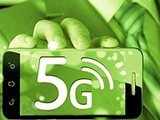As of 2020, 5G networks shall operate with a view to provide impetus for the age of “all-connected”
 Back in 1995, the Internet’s speed was as slow as molasses compared to today. And it was not the source of interest it has become today. It was still in its infancy at that time, and even Steve Jobs himself said then that “it [the Web] is going to be the defining technology, the defining social moment for computing”. And so it happened, eventually. And that can be even more so. That is why there is considerable interest in the so-called “Internet of Things (IoT)”, meaning that e-objects increase their functionality thanks to network connectivity. The final piece of the puzzle is to implement the suitable infrastructure enabling the rollout of 5G networks which, in turn, will make it possible, amongst other things, that “smart cities” appear, bringing forward new services.
Back in 1995, the Internet’s speed was as slow as molasses compared to today. And it was not the source of interest it has become today. It was still in its infancy at that time, and even Steve Jobs himself said then that “it [the Web] is going to be the defining technology, the defining social moment for computing”. And so it happened, eventually. And that can be even more so. That is why there is considerable interest in the so-called “Internet of Things (IoT)”, meaning that e-objects increase their functionality thanks to network connectivity. The final piece of the puzzle is to implement the suitable infrastructure enabling the rollout of 5G networks which, in turn, will make it possible, amongst other things, that “smart cities” appear, bringing forward new services.
Those new mobile networks, which shall begin to operate commercially as of 2020 (starting to be implemented from 2018), are currently in a development stage by some companies within the industry, such as Ericsson o Huawei, as well as by other telecom companies as Telefónica. Moreover, they introduce themselves as one of the main pillars for economic development and growth in the future. According to Arturo Azcorra, Director at IMDEA Networks and Full Professor at the Universidad Carlos III de Madrid (UC3M) (Madrid, Spain) in the Telematics Engineering Department, “this is going to let us do things we cannot do today”.
You can find the full text of this article in ABC Tecnología. (Full text available only in Spanish)

